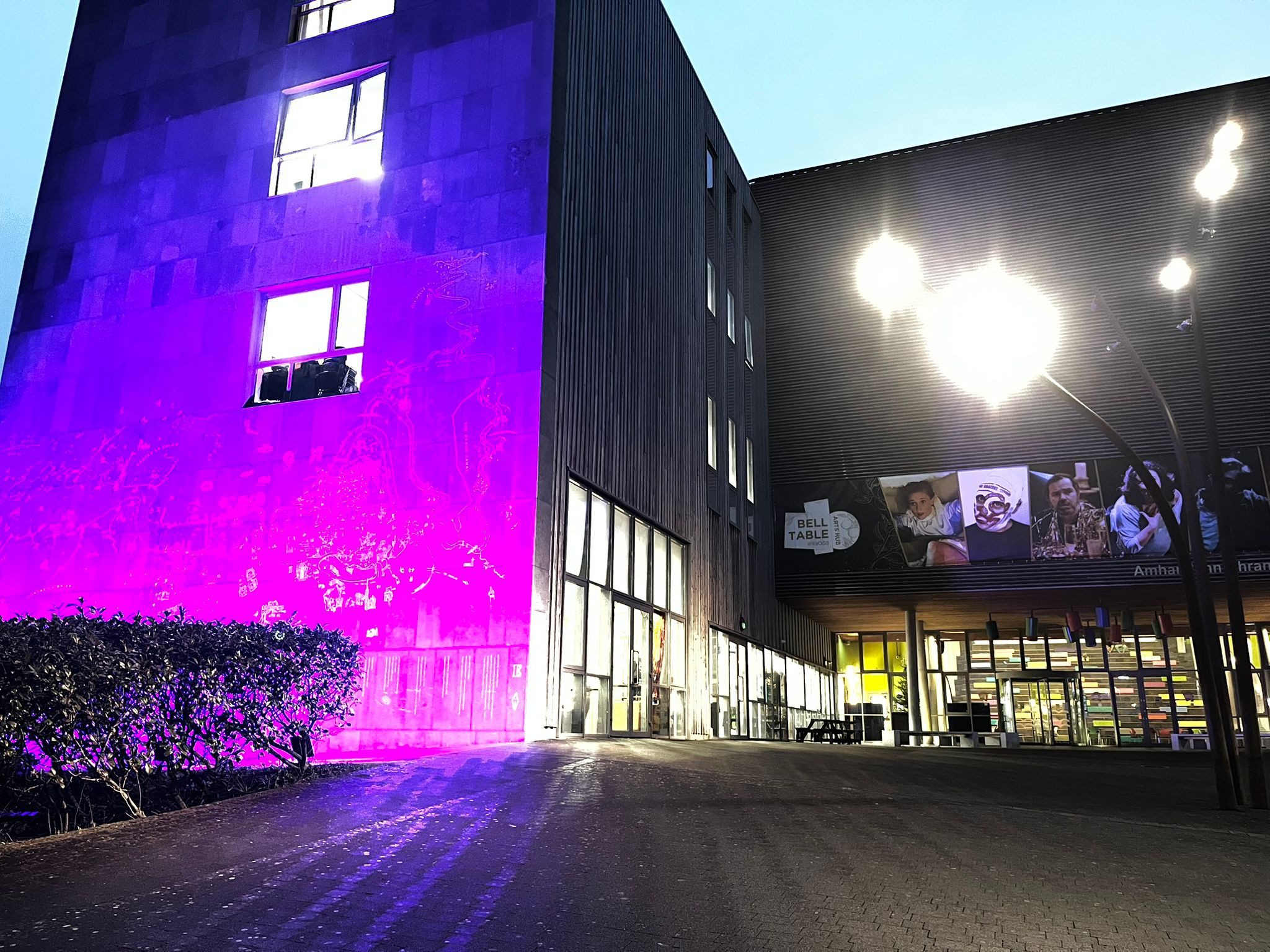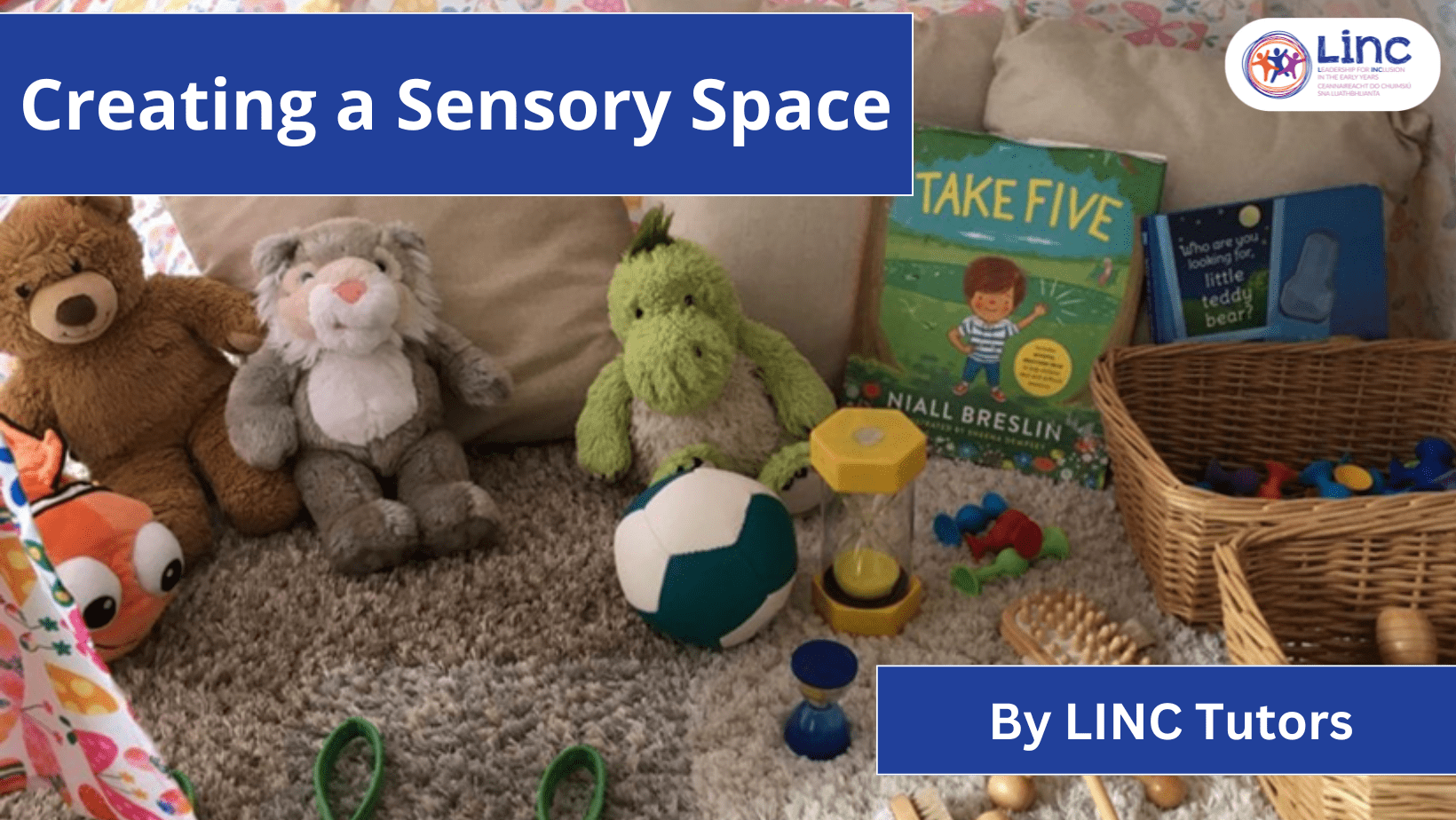Because Neurodivergent Children Become Neurodivergent Adults
In this edition of the LINC Blog, Award-Winning Specialist Training & Consultancy in Neurodiversity within Early Years, Cheryl Warren explores how we can better support neurodivergent individuals as they transition from childhood to adulthood, particularly in the workplace. Cheryl discusses practical steps employers can take to create a neurodiversity-affirming environment, from inclusive hiring processes to ensuring clear communication and support throughout an employee’s journey.

Neurodivergence isn’t something that people ‘grow out of’. If you are autistic, ADHD or dyslexic, its part of your identity, it’s your part of your uniqueness, it’s you. Therefore, you will already have, or are currently working alongside a neurodivergent colleague, and by the way, how lucky are you?! How amazing is it to have that creativity, that out of the box thinking, that attention to detail, that wonderful passionate interest in something, right there as the qualities of a member/s of your team.
And just like we all know that we need to create safe, trusted, compassionate spaces for our children, we need to provide the same for our neurodivergent staff. We need, must, and should accept, validate and celebrate their uniqueness, their contribution to the team and harness their strengths and expertise.
So how do we support everyone in our team? How do we appoint neurodivergent staff and how to we ensure we can keep them with us?
It all starts from the beginning
What do you know about someone prior to interview? We need to know their contact details, their experience in the sector and their qualifications of course, but do you know how to get the most and the best from them at interview? If you are a neurotypical owner/manager, you will know what you are expecting from an interview and the candidate, you will know the format of the interview, you will know the questions you are gong to be asking, you will know the environment it will be held in. These are all new to your candidate and for a neurodivergent candidate, all these anomalies can create stress and anxiety from the unknown, and stress and anxiety could result in a no show for interview, or alter the person who shows up and the result of the interview due to overwhelm.
So, let’s remove the unknown so that your neurodivergent candidate shows up and is giving every opportunity to shine!
How you can help to prepare them
In you communication with them, outline how you are a neurodiversity affirming employer and what that looks like for them as an employee, starting with how you will offer them the best you can with accommodations and preparations for interview.
- You will welcome and allow a fidget tool/device for during the interview with no questions asked
- You will allow for extra time if required, especially if your interview includes an element of reading/writing
- You will send out a personal interview reminder that includes the time, location, what to wear and who will be in the interview with them
- You will send them clear details of what you will be expecting and the format of the interview. Eg, does it include a show round, a formal interview, a stay and play, how long will these be for and what are you wanting them to do for each of these
- You will offer interview breaks if required
- If the interview process lasts for a few hours, you will provide them details of whether they need to bring lunch or where they can get lunch locally
- You will ask if they prefer to have an initial conversation with the interviewer on zoom, to meet them and ask any additional questions prior to interview.
The support doesn’t stop at interview
With all of the above in place, you successfully appoint your neurodivergent colleague, congratulations! Now is the time, to offer them time to understand what they need from you as an employer. Consider and reflect on your onboarding processes, what adaptions can/need to be made to ensure the process is supportive of their unique needs? Again, talk them through the process and ask what they may need from you. It’s all about openness, non-judgement, compassion and understanding. And this support, time, checking in with them needs to be clearly embedded in your offer to them as an employee.
Task expectations
A bit like the initial interview, when you set a task for a member of your team, you already have your expectations, you know what you want, how it needs to look and when you need it by. Is this clear for all staff? Tensions can build if there is a difference between what the employer is expecting and what the neurodivergent employee is understanding the expectation is. Don’t leave room for interpretation, be clear on what it is you want and need from them.
- When sending an email, make sure you are clear on the response you need from it – is it just a yes/no, is a response needed at all, is it just an acknowledgement that it’s been read?
- When setting a task, what are you expecting it to look like, when do you need it competed by, what’s the purpose of the task, and make it clear if they can check in with you if they need to during the process.
- Is there flexibility to offer more time, if it’s a written task, is there the opportunity and resources available to complete it on a laptop or computer, or can they voice note or voice record it?
Meetings
Early years and education are full of them aren’t they! But again, are the expectations clear for your neurodivergent staff. Does everyone know what to expect, what’s the format and what time will it finish?!
- Share clear details on the start and finish time
- Share the agenda in advance to remove any stress or anxiety
- Be clear on what the employee is expected to contribute to the meeting to remove any surprises
- Will the meeting be in person or online? If online, again be clear on expectations, even down to camera on/off
- If the meeting is in person, create a sensory friendly, calm, low arousal space
- Consider the use of visuals or examples to support what you are saying and to remove any anomalies or differences in expectations
- If the meeting is after work, are you providing food, if so what food? All of this is really important, again, to remove any surprises
- If the meeting is after work, set the finish time and stick to it. This ensure there is time to clearly set out and prepare their journey home, the different time bus/train they’ll need to get, again removing a stressor
In essence, be concise, be clear and be compassionate.
Remove any element of surprise or grey areas, provide support without judgement, offer adaptions and accommodations, provide space and hold space for ALL your team members to thrive in the workplace.

Cheryl Warren
Award Winning Trainer & Consultant
Cheryl is an award winning trainer and consultant working across the UK and is clear on her mission, to provide early years spaces that enable our neurodivergent children to thrive, not just survive. Cheryl’s passion and specialism for understanding and acceptance for neurodiversity within early years is impactful and comes from the heart, as a professional and also as parent of two neurodivergent children herself. She is an advocate for true neurodiversity affirming practice, enabling ALL children to be heard, to be given the tools and connections to thrive and to be celebrated and accepted for their uniqueness. Her work has now taken her international with speaking and training invitations across Europe and is about to have her first book published on this important subject.
You may also like:

LINC Shines a Light on Inclusion for the International Day of Persons with Disabilities 2025
LINC Shines a Light on Inclusion for the International Day of Persons with Disabilities 2025 The Leadership for INClusion in the Early Years (LINC) Programme marked the United Nations International Day of Persons with Disabilities (IDPD) this evening by illuminating...

Creating a Sensory Space
Creating a Sensory Space In this edition of the LINC blog, Claire Butterly, Karina Abbott, Ann Donnellan, Carole Dee, Linda Madden, Margaret Joyce and Paula Harte highlight some considerations when planning a sensory space in your Early Learning and Care setting....

Deck the Walls: Inclusive Christmas Displays that Celebrate Every Child
Deck the Walls: Inclusive Christmas Displays that Celebrate Every Child In this edition of the LINC Blog, former LINC Tutor Paula Harte explores how Christmas displays can bring warmth, creativity, and connection to Early Learning and Care (ELC) and School-Aged...
